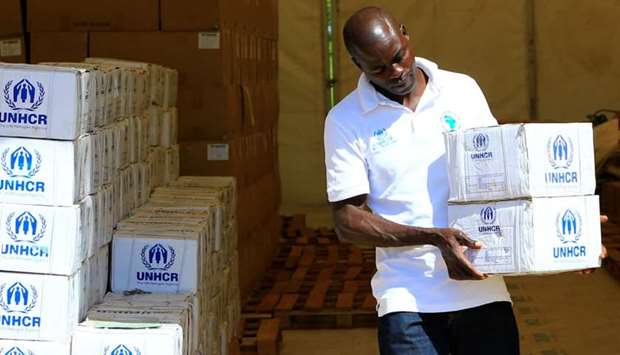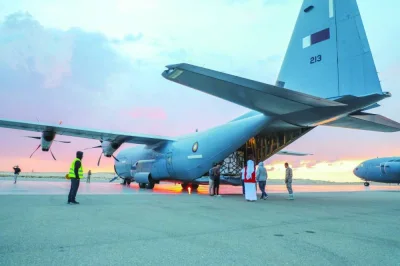The United Nations, short of funds to support millions of displaced people in the Middle East, has begun a scheme that would let Muslims make donations from the alms they typically pay state bodies for the benefit of the poor.
The UN High Commission for Refugees said it had obtained religious rulings from top Muslim clerics in Egypt, Morocco and Yemen as well as a senior Islamic scholar in Saudi Arabia, that it hoped would persuade wealthy Muslims to donate their alms directly for relief work.
"It is an innovation in our efforts to raise funding," said Muhammed Abu Asaker, a UNHCR Middle East spokesman.
The UNHCR posted the rulings on its webpage that appeals for zakat contributions to aid programmes.
The amount of zakat money distributed each year in Muslim countries ranges from $20 billion to $30 billion, experts say.
The United Nations has projected it will need a total of $8 billion this year to provide life-saving assistance to millions of Syrians inside their shattered homeland and to refugees and their host communities in neighbouring countries.
UNHCR has also called for $2.1 billion to provide food, and medicine for Yemen, where 12 million people are at risk of famine and cholera brought on by two years of civil war.
Millions of Syrians, Iraqis and Yemenis have been displaced by years of civil war, sometimes to neighbouring countries, straining the hosts' resources as well as United Nations and other non-governmental humanitarian agencies.
UNHCR said it will use some of the additional funds it expects from the alms project to help some 30,000 of the most vulnerable Syrian refugee families in Jordan, with around $180 in monthly cash support for each family.
"The needs of these people increase daily and because the crises are ongoing, for example, the Syrian crisis is entering its 7th year," Abu Asaker said.
"So anything these people had is not completely gone and they need continuous support. So this requires us as an organisation to search for creative ways that go in parallel with governmental support, which has become insufficient given the rising number in refugees and IDPs (internally displaced people)."

A social worker arranges emergency utensil boxes at the United Nations High Commissioner for Refugees (UNHCR) store, for distribution to South Sudanese refugees, arriving at the Palabek Refugee Settlement Camp in Lamwo district, Uganda.


